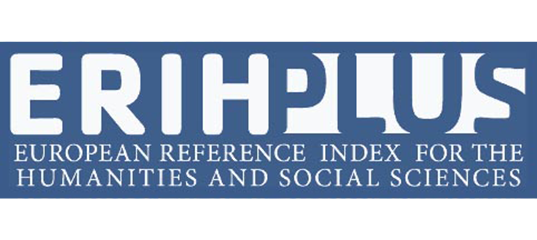Self-perception of occupational health in teachers of the Institute Superior Technologic Sucre
DOI:
https://doi.org/10.46480/esj.5.3.144Keywords:
Self-perception of health, teachers of an institute, Pandemic Covid 19, socio-demographic variablesAbstract
The objective of the study was to quantify and interpret the indicators and meanings of the self-perception of health of the teachers of a Higher Technological Institute. The scope was descriptive, correlational and explanatory with a mixed derivative QUANTI - quali approach. The quantitative part had a non-experimental, descriptive and correlational design. The Goldberg GHQ-30 General Health questionnaire was applied to 106 teachers, the results of its variables were analyzed associating them with nominal data through the Chi square X2, V of crammer and the odds ratio to determine statistically significant relationships, inferential force and probability of occurrence. The qualitative phase was developed through the focal interview with purposeful sampling, the thematic axes were the same dimensions of the Goldberg questionnaire. The method of analysis was of thematic content. As main results: 39 teachers presented mental health disorders: psychosomatic symptoms: 23.6%, anxiety and insomnia: 12.3%, social dysfunction: 4.7% and depression: 0.9%. Women and teachers of the Environmental Management career turned out to be vulnerable groups to psychosomatic symptoms with OR scores of 3.2 and 3.3 respectively. Among the causes evidenced in the interviews, the ailments are due to: working conditions, change of modality, learning virtual environments, job insecurity and fear of being fired. It is concluded that the occurrence of the Covid19 pandemic increased the degree of exposure to risk factors related to the characteristics of the teaching task that has affected mental and emotional health.
Downloads
References
Avilés, A. E. B., Alava, L. A. R., Urra, R. G., & Rivadeneira, M. L. (2020). Reacciones psicosomáticas producidas por el estrés y la salud mental de los docentes universitarios. ReHuSo: Revista de Ciencias Humanísticas y Sociales, 5(3), 16-25.
Dos Santos, B., Scorsolini-Comin, F., & Dalri, R. (2020). Ser docente en el contexto de la pandemia de COVID-19: reflexiones sobre la salud mental. Index de Enfermería, 29(3), 137-141.
Fernández, M. P. (2018). Relación entre desgaste ocupacional y manifestaciones psicosomáticas en una muestra de docentes colombianos de la ciudad de Santa Marta. Archivos de Medicina (Col), 17(1), 78-90.
García Padilla, A. A., Escorcia Bonivento, C. V., & Perez Suarez, B. S. (2017). Síndrome de Burnout y sentimiento de autoeficacia en profesores universitarios. Propósitos y Representaciones, 5(2), 65-126.
Guerrero-Barona, E., del Amo, R. G., Moreno-Manso, J. M., & Guerrero-Molina, M. (2018). Factores de riesgo psicosocial, estrés percibido y salud mental en el profesorado. Psychosocial risk factors, perceived stress and mental health in teachers. Revista Clínica Contemporánea, 9(e2), 1-12.
Lazarus R. y Folkman, S. (1984). Stress, Appraisal, and Coping. Nueva York: Springer.
Noroña, D., Baltazar, R., & Contreras, R. (2020). Psychosocial Risk Factors, Labor Violence and Gender in Teachers in Higher Institutes of Ecuador. TEST Engineering & Management, 83(1), 25795-25802.
Ortiz, G., Toro, P., & Hermosa, A. (2019). Riesgos para la salud de profesores universitarios derivados de factores psicosociales laborales. Universitas Psychologica, 18(3), 1-15.
Peralta, J. (2018). Estrés y factores psicosomáticos en docentes de una escuela normal particular: una comparación de grupos de sexos. Kinesis Revista Veracruzana de Investigación Docente, 3(3), 45-53.
Quintero, S., & Calle, J. A. H. (2021). Síntomas de Depresión asociados al Síndrome de Burnout y a condiciones socio-laborales de Docentes de Colegios Públicos de Envigado-Colombia. Psicología desde el Caribe, 38(1).
Rodríguez, A., Bermello, I., Pinargote, E., & Durán, U. (2018). El estrés y su impacto en la salud mental de los docentes universitarios. Revista Caribeña de Ciencias Sociales, 3.
Sucari, W., & Quispe, J. (2019). Trabajo docente en equipo y su relación con los compromisos de gestión escolar en educación secundaria. Revista Innova Educación, 1(2), 156-171.
Published
Issue
Section
License
Authors retain the copyright of their articles and are therefore free to share, copy, distribute, perform, and publicly communicate their work on their personal websites or in institutional repositories after its publication in this journal, provided that full bibliographic information is given to acknowledge its original publication.































